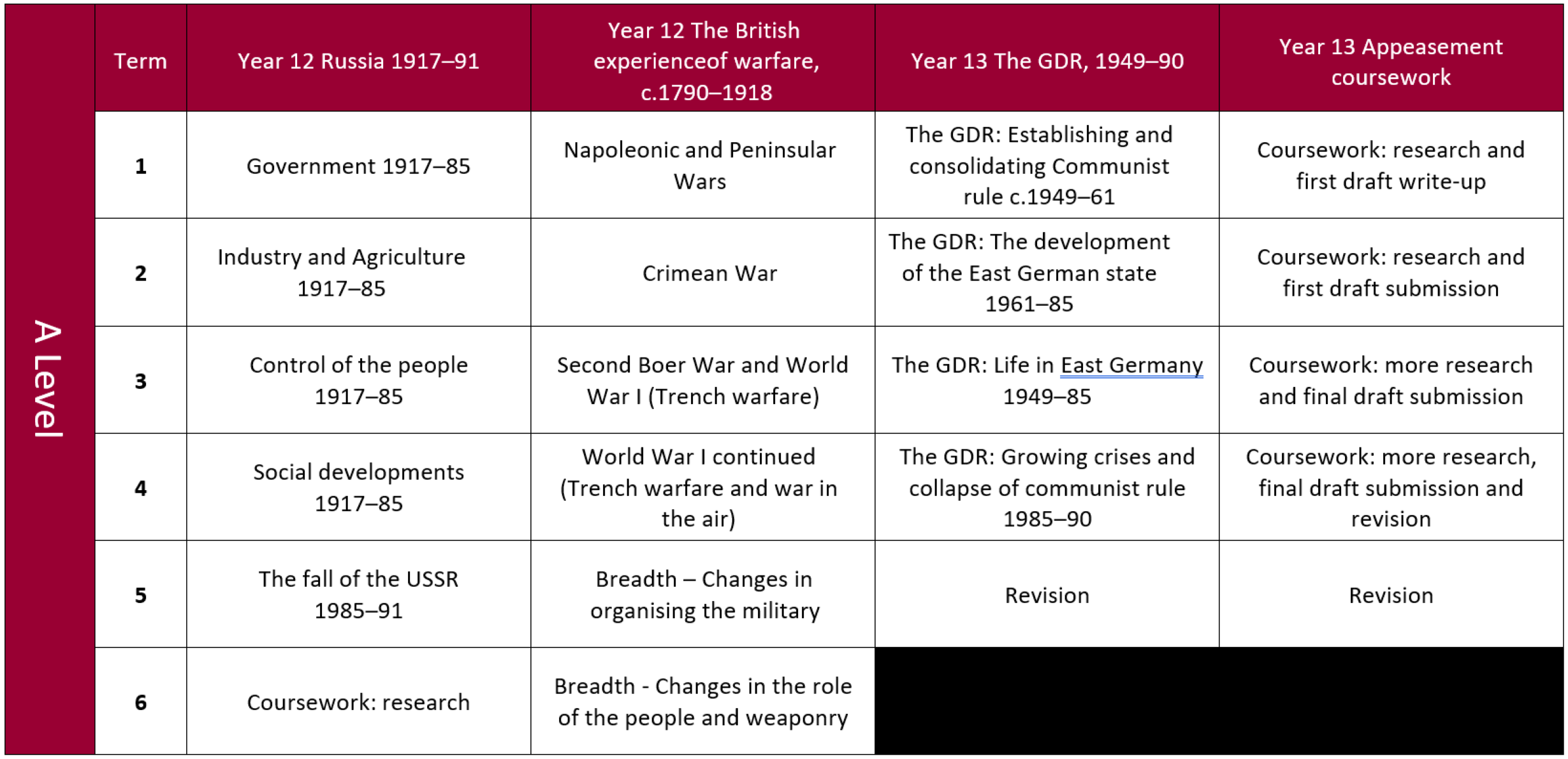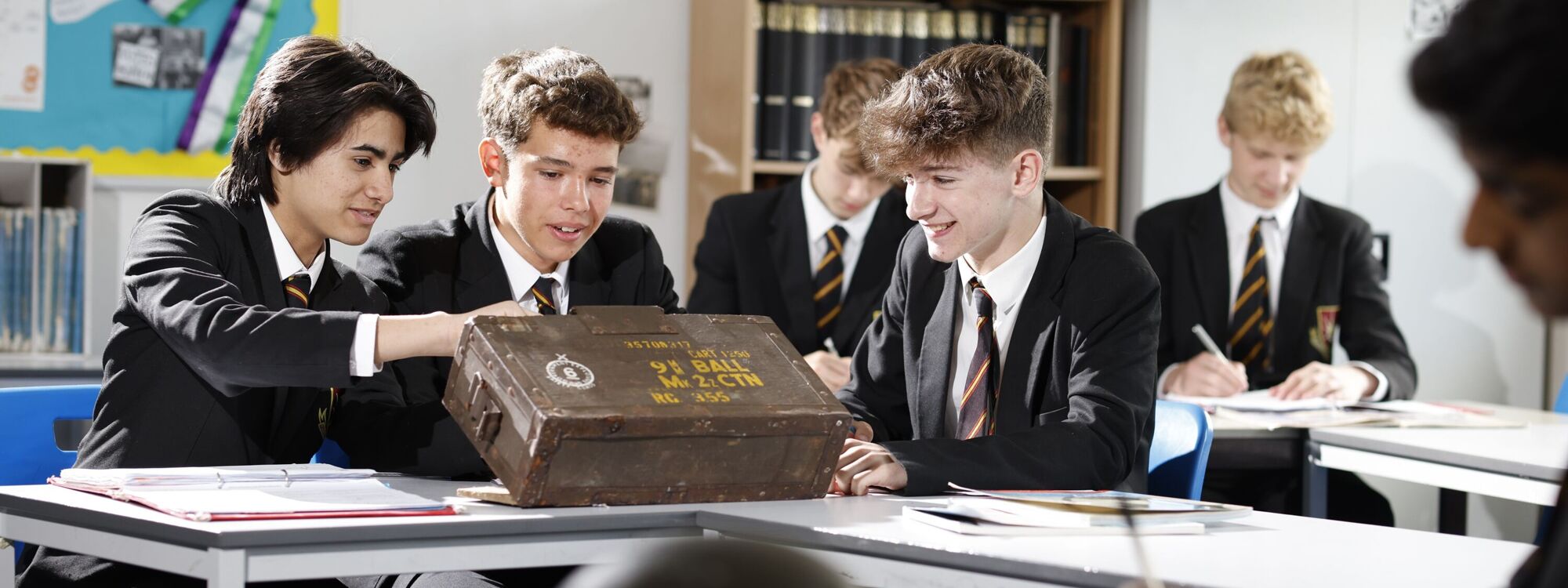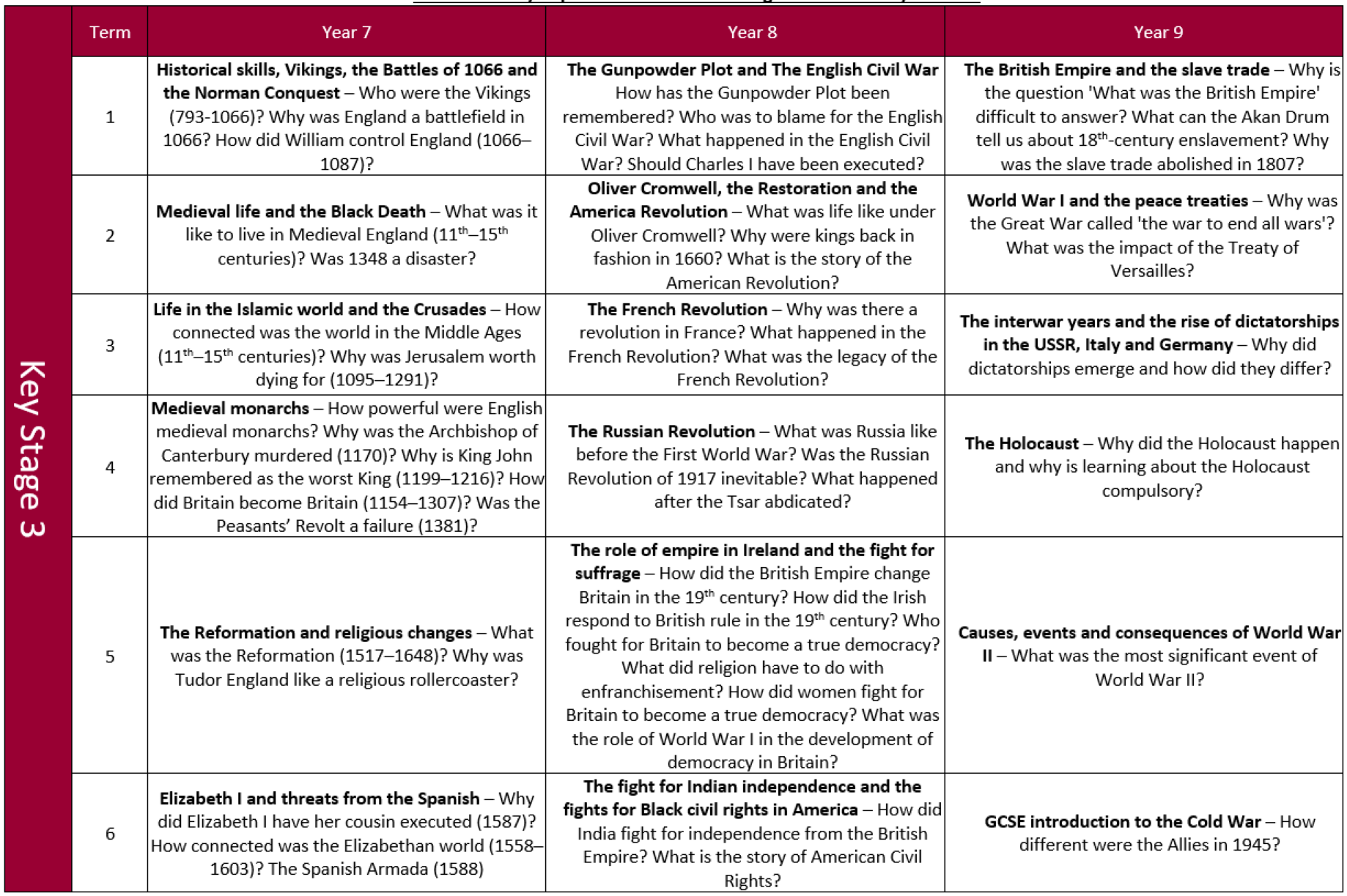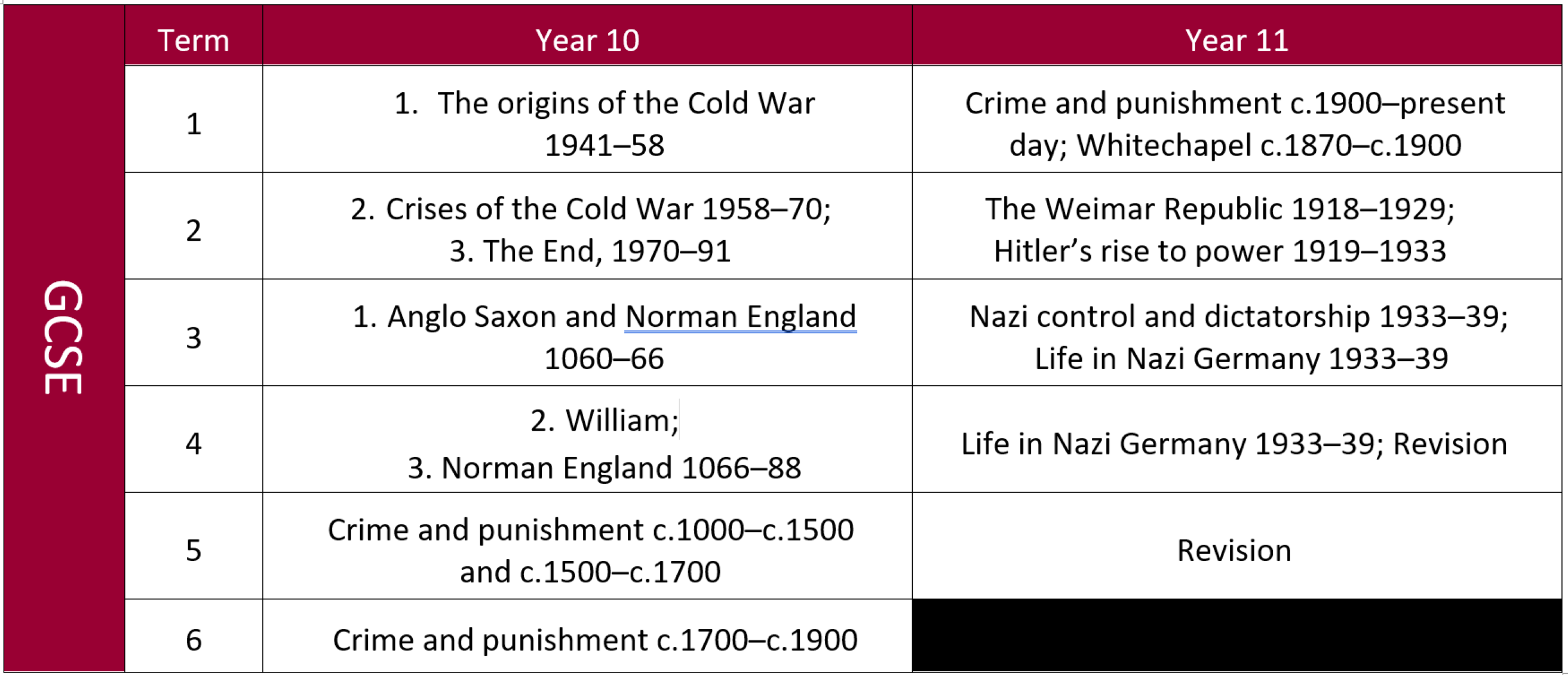History
BackHead of Department: Mr J Pratt
Teachers: Ms R Codlin, Mr A Hammond, Miss L Merricks, Mr S Rockell, Mrs M Stevens, Mr J Stuart
The History Department has consistently achieved top results at both GCSE and A Level. The History curriculum covers a wide range of topics and it is our intention to develop a passion and enthusiasm for History among the students we teach. In a changing world, History equips students with the skills and knowledge to be able to understand why these changes have happened, how important they are, the impact of these changes and the individual stories that underpin them. Through the content learned, students will emerge from their studies with a stronger grasp of why events happen in the way they do and why historians have different views about the past. They will also learn how to analyse a range of different sources, looking for hidden meanings, and be able to articulate both verbally and in a written format a coherent and well-substantiated argument. The key aim is to ensure that all students have a clear understanding of their place in the world. [Updated 2023/24]
Co-curricular activities
- KS3 trips to Battle Abbey (Year 7) and Ypres (Year 9)
- KS4 trips to Berlin and the Imperial War Museum, London (both Year 10) and Whitechapel, London (Year 11)
- KS5 trips to the National Maritime Museum and France/Belgium for Study of Warfare (both Year 13)
- Debating Society.
A people without knowledge of their past history, origin and culture is like a tree without roots.
(Marcus Garvey)
Years 7, 8 and 9
GCSE: Years 10 and 11
A Level: Years 12 and 13

Course content: The A Level History course allows students to develop a deepened historical knowledge and understanding of a number of pivotal periods and events that have shaped the world we live in today. The course will enable you to develop important transferable skills including, critically evaluating evidence, researching and using historical documents, producing reasoned and thoughtful arguments, presentation and interpersonal skills. History is an academic subject and consequently, it is well respected by universities and gives access to a wide range of employment opportunities.
|
Unit |
Outline |
A Level |
|---|---|---|
|
1
|
Breadth study with interpretations: Russia, 1917–1991: from Lenin to Yeltsin Students will study the communist government, industrial and agricultural change, control of the people and social developments between 1917–85. Students will also consider the reasons for the collapse of the USSR c.1985–91. The exam involves three essay questions with the latter of the three assessing different interpretations of the decline and end of the USSR under Gorbachev. |
30%
|
|
2
|
Depth study: The German Democratic Republic, 1949–90 An in-depth study of the German Democratic Republic from its formation after World War Two to its collapse in 1990. Students will be required to complete both a depth essay as well as a source-based question. |
20%
|
|
3
|
Themes in breadth with aspects in depth: The British experience of warfare, c.1790–1918 Students will investigate the changing nature and experience of warfare from the Napoleonic wars to end of World War One. This exam will involve three essays; one focused on depth, one focused on breadth and one source based essay. |
30%
|
|
4
|
Interpretations of Appeasement during the 1930s – Coursework Students complete an independently researched enquiry on historical interpretations. This unit requires students to complete a 3000–4000 word essay. |
20%
|
Exam board: Edexcel
Careers Education
- The Department has a successful track record of students proceeding to study History, Politics or International Relations at University. A number of students have gone on to study the subject at Oxbridge.
- The Department provides specific guidance to students applying for History and develops important skills outside the classroom through the Debating Society, extensive reading lists and a wide range of books that help students to investigate Historical periods outside of the curriculum.
- The Department also provides advice for those students who require extra support for any applications to higher education.


